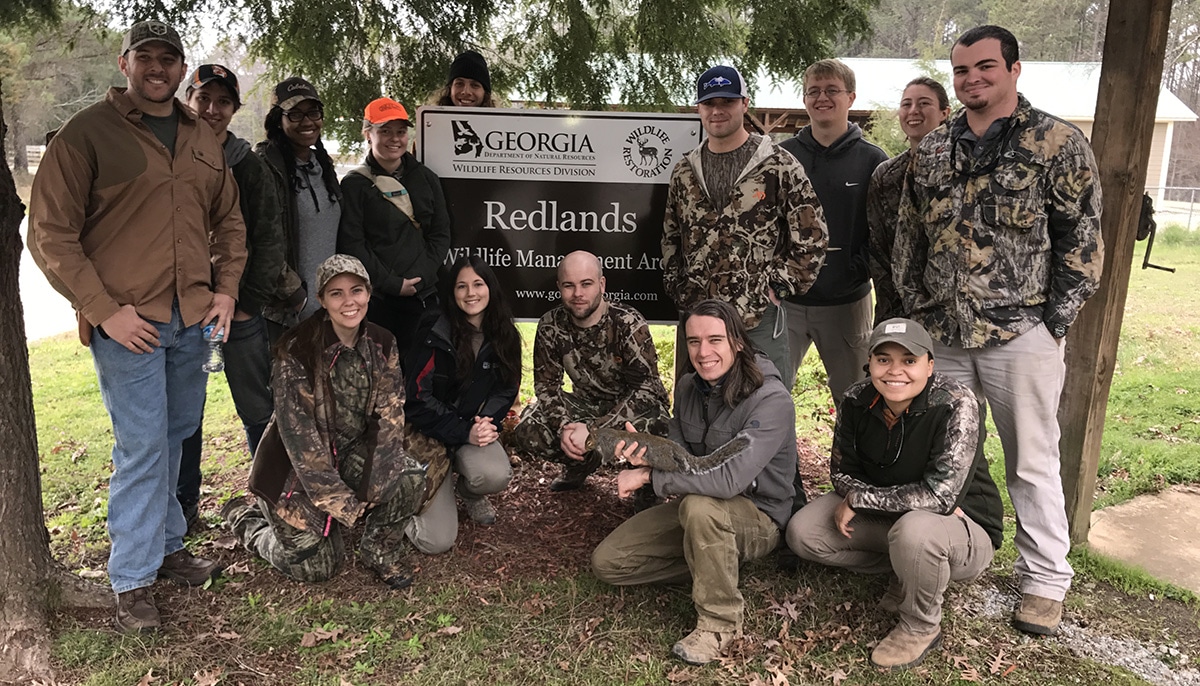Over the past couple of decades, we have seen a shift the in the rural traditions, values, and beliefs that have formed the foundation of hunting in the United States. In Georgia, we are shifting with them by offering adult audiences with interest in hunting, but no avenue to pursue it, a chance to get out there. Hunting recruitment programs have largely targeted youth in the past, however it has been suggested that adults may be a more efficient audience considering they have decision-making authority, financial resources, transportation, and may currently or one day have children of their own.
You may recall an article in the December 2016/January 2017 issue of Quality Whitetails about Field to Fork, a program introducing locavores to hunting, our first pilot into targeting adult audiences from non-traditional backgrounds in Georgia. The implications of this program were huge given that it provided us an example of success for a model which has not been tried in the past in much of the nation. The true outcomes of the Field to Fork program will be revealed with time, however the short-term success was evident. The majority of participants reported they are now confident they could hunt on their own, and over 80 percent stated they are likely to do so.

Hank Forester, QDMA’s Hunting Heritage Programs Manager, and I set up a few meetings to get things rolling. Before long we had built a partnership between QDMA, Georgia DNR, and the student chapters of The Wildlife Society (TWS) and National Wild Turkey Federation (NWTF). This partnership-based approach provided us the capacity to kick off the first phase of the biannual Warnell Learn-to-Hunt Program, consisting of a squirrel hunt in the spring semester and a deer hunt in the fall semester.
Small-game hunting often gets overlooked, but it can be excellent recreation for everyone from novice to the most experienced hunters. Squirrels are plentiful, taste excellent, provide a relaxed hunting environment, property access is easy to acquire, and they generally yield more shot opportunities than many other species. With these small-game hunting benefits in mind, we started the Warnell Learn-to-Hunt Program with a squirrel hunt this past February. We selected a group of students with little or no hunting experience and provided hunter education. Our first training session was in the classroom where we taught participants about squirrel biology, how it relates to hunting strategy, and conducted a hands-on squirrel cleaning lesson. The following weekend we got everyone out in the field for firearms training. Thanks to the Cabela’s Outdoor Fund, we were able to purchase shotguns for use in adult programming in Georgia, and they had their first outing with this program. Each participant received firearms safety training and went through a course of stationary clay pigeons.
Warnell students with hunting experience volunteered to serve as guides for the program, and we held the hunt on public land. Everyone was paired with their mentor and set off to their respective locations. Using a combination of stalking and still-hunting, the mentor-mentee pairs worked their way through the creek bottoms and across the hardwood ridges.

The initial phase of the program was certainly successful, however as with Field to Fork, the true outcomes will be measured with time. To ensure the program is sustained, we have appointed student Hunt Coordinators to the TWS and NWTF chapters. Working in conjunction with QDMA, these coordinators will be taking on the bulk of responsibility for planning and implementing these hunts in the future.
If you live in a college town or are part of a college QDMA Branch and are interested in starting a Learn-to-Hunt program, please contact Hank Forester.
NDA Celebrates the Introduction of the North American Grasslands Conservation Act
The National Deer Association (NDA), joined by a coalition of the nation’s leading conservation organizations, welcomes the introduction of the largest grasslands legislative effort in history – The North American Grasslands Conservation Act (NAGCA) –…
read more